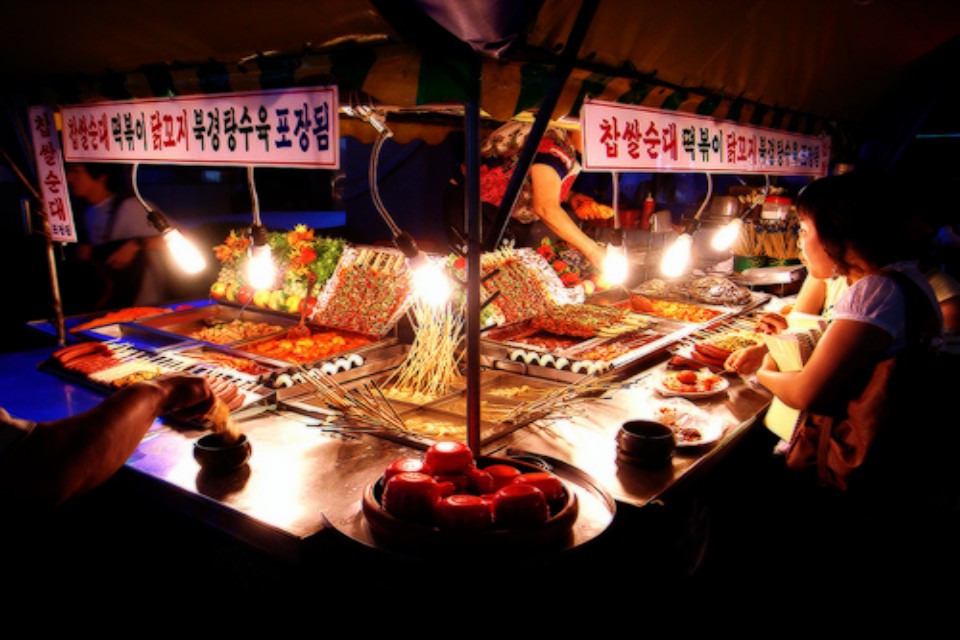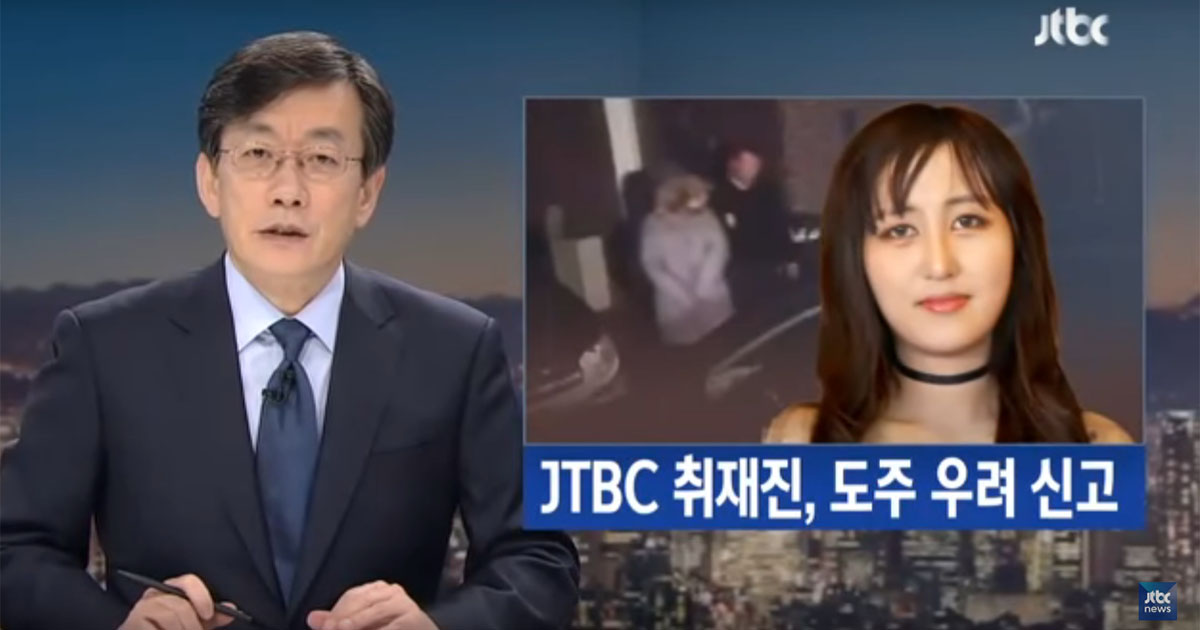In Seoul’s central Jongno District lies one of the city’s last pojangmacha alleys. Every day around late afternoon, hired workers take apart around two dozen wheeled carts lining both sides of the alley. Tents are thrown over steel frames; five-gallon oil containers filled to the brim with water are used as makeshifts pegs; simple red banners displaying the pojangmacha owner’s name are pinned onto every tent entrance, a loose plastic flap.


